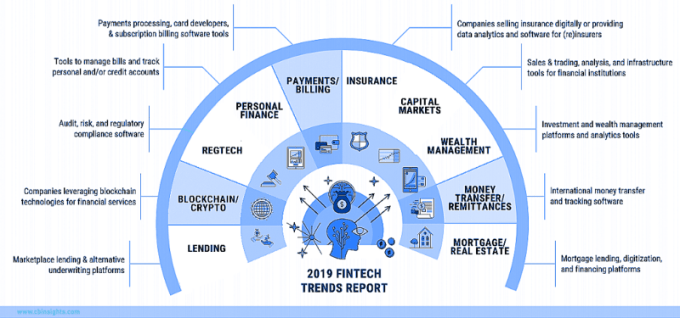Kenyan President, Uhuru Kenyatta, has signed the much awaited 2021 Central Bank of Kenya (Amendment) Bill into law. Under the new law, digital lending companies will not be bound to minimum capital and liquidity criteria.
However, Bank of Kenya (CBK) has been given authority to oversee the contentious creditors under law

While the CBK will not impose any capital or liquidity requirements on lenders, the reserve bank has been given substantive powers to intervene in the unregulated industry, which Governor Dr. Patrick Njoroge has compared to the Wild West.
“One is minding their own business only to get a call from deep from their rural area on why they have not paid their loan. Imagine if we called your boss to say you owe us serious money only for the debt to turn out to be Ksh.2000. What would happen?” Dr. Njoroge asked in a previous news conference.
Read also Kenyan Startup Invests in Ivorian Logistics Startup Kamtar
“These (digital lenders) are little fleas. Their output in terms of credit is less than 0.14 percent, that’s less than the smallest bank around but in terms of noise and pain to Kenyans they are at 90 percent.”
Here Is What You Need To Know
- The new law will now require digital lenders to submit key documents when applying for CBK licensing, including a certificate of incorporation under the Companies Act, memorandum and articles of association, and a statement of compliance with the Consumer Protection Act’s provisions.
- From the date the CBK publishes the necessary regulations, players in the digital lending market will have six months to apply for licence.
- By signing the new law, the CBK has now been given the authority to proverbially bell the cat, with the banking sector regulator looking to bring order to an industry that has been accused of a variety of wrongdoings, including charging borrowers exorbitant interest rates and using crude and deceptive debt collection tactics.
- CBK Governor Patrick Njoroge has remained outspoken about the alleged wrongdoings, claiming that the digital lenders are a burden on not only Kenyans but also the economy.
- The CBK will be able to set limitations for interest rates charged by digital lenders, and the reserve bank will have the authority to cancel licenses from players that violate the Data Protection or Consumer Protection Act’s criteria.
- Meanwhile, after being kicked out of the credit information sharing (CIS) system last year by CBK, digital lenders will now be able to list creditors with Credit Reference Bureaus (CRBs).
The Implications Of The New Law On Digital Financial Services Startups In Kenya
Implied Lifting Of The Ban On Credit Lending Startups
The first implication of the new law would be to terminate the ban on credit lending startups in Kenya as regards submitting credit information on their borrowers to Credit Reference Bureaus (CRBs). Thus, with a renewed power to report customers for blacklisting to the country’s central credit information sharing center, it is only safe to say that the risks associated with their business model have become, once again, more manageable.
Read also Kenya Plans To Shut Down Unlicensed Ecommerce Platforms
Licensing of Digital Financial Services Companies/Startups
Another direct implication of the new law on digital financial services startups in Kenya is that the Central Bank of Kenya will now possess recognized power under the law to issue operational licenses to startups desiring to provide services related to a digital financial product, financial product advice, market, administrative or management services or credit under a regulated credit contract in Kenya.

Read also: Kenya Bans Digital Money Lenders, Extends Loan Repayment Period For Businesses
Regulation of Interest Rates Charged Users Of Digital Lending Services
Even though digital lenders in Kenya may still be allowed to lend, the law would however, now see that they do not charge interests on their loans excessively. This is because the CBK could now determine the maximum rate of interest they charge their customers.
Read also Paxful Partners Uhuru Wallet to Ease Money Transfers
The latest move to control the activities of digital lenders follows the removal of legal cap on commercial lending rates by the Central Bank of Kenya in March 2020. The cap, established far back in 2016, which set interest rates chargeable by banks at 4%, was intended to address the issue of the affordability of credit for small enterprises and working people, as they had complained for years that high interest rates had locked them out of accessing credit.
Its removal in March last year has, however, resulted in the proliferation of digital lenders, who seek to take advantage of the business opportunities it offered. For instance, Tala, Branch, which are among top players in the mobile digital lending market in the country, offer interest rates of 152.4 percent and 132 percent per year respectively.
Digital lending law Kenya Digital lending law Kenya
Charles Rapulu Udoh

Charles Rapulu Udoh is a Lagos-based lawyer who has advised startups across Africa on issues such as startup funding (Venture Capital, Debt financing, private equity, angel investing etc), taxation, strategies, etc. He also has special focus on the protection of business or brands’ intellectual property rights ( such as trademark, patent or design) across Africa and other foreign jurisdictions.
He is well versed on issues of ESG (sustainability), media and entertainment law, corporate finance and governance.
He is also an award-winning writer
